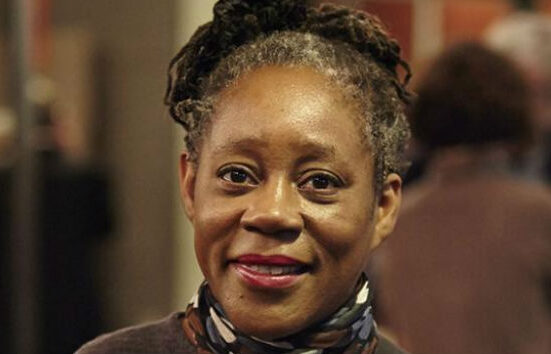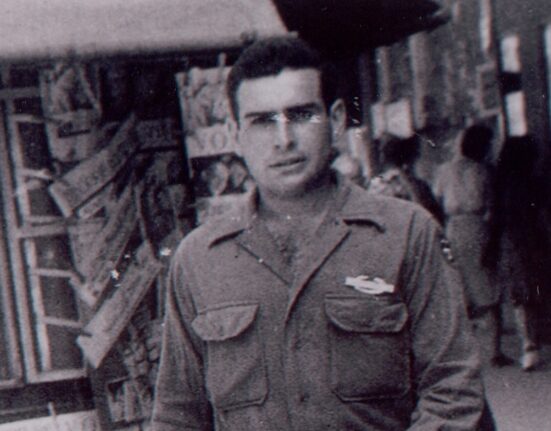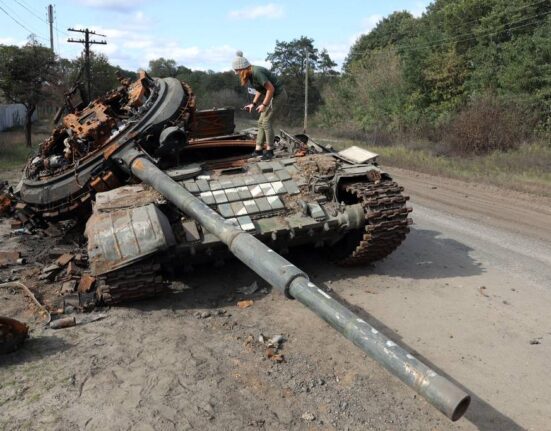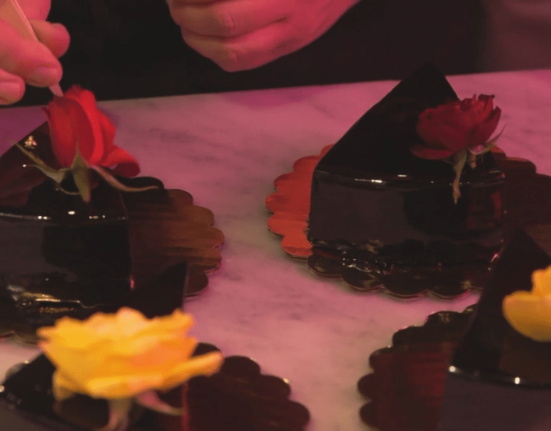[1/3]Alexandra (Sasha) Skochilenko, a 33-year-old artist and musician charged with spreading false information about Russia’s armed forces after replacing supermarket price tags with slogans protesting against the country’s military operation in Ukraine, is escorted during a court hearing in Saint… Acquire Licensing Rights
Nov 8 (Reuters) – A female Russian artist who staged a protest against Moscow’s war in Ukraine by replacing supermarket price tags with trenchant calls to stop the conflict is facing eight years in a penal colony after a court hearing on Wednesday.
Alexandra Skochilenko, 33, an artist and musician known to her friends as “Sasha”, carried out the protest on March 31 2022, replacing price tags in a supermarket in St Petersburg, Russia’s second city, with five little pieces of paper urging an end to what Moscow calls a “special military operation”.
Alexander Gladyshev, a state prosecutor, on Wednesday asked a judge in St Petersburg to jail her for eight years and ban her from using the Internet for three years, according to a statement from St Petersburg’s courts.
The prosecution had previously accused her of committing what it described as a serious crime out of “political hatred towards the Russian Federation”.
Skochilenko, who denies the charge, was detained on April 11, 2022, after a shopper complained about her action.
She is being tried on the charge of knowingly spreading fake information about the Russian army, an offence punishable in her case by up to 10 years, but which can sometimes lead to a 15-year jail term.
Russia tightened its laws on dissent soon after sending its troops into Ukraine on Feb. 24 last year, deepening a crackdown on critics whom Moscow sees as unacceptably divisive at a time when the country is locked in what President Vladimir Putin has cast as an existential struggle with the West.
Amnesty International has declared Skochilenko “a prisoner of conscience” – someone who has not used or advocated violence or hatred and is imprisoned solely because of who they are or what they believe.
The artist smiled from a courtroom cage on Wednesday as she listened to proceedings despite the prospect of facing a lengthy stint behind bars.
ANTI-WAR ‘PRICE TAGS’
Copies of the imitation price tags which got her into trouble in the first place remain on display on a website maintained by her supporters lobbying for her to be freed.
One of the tags accused the Russian army of bombing a theatre in the port city of Mariupol where around 400 people were hiding – a charge Moscow said at the time was false.
Another alleged that Russia was sending conscripts to fight in Ukraine, something it has denied; a third cited alleged Russian casualty figures and accused state TV of not talking about them, and a fourth accused President Putin of lying and spoke of “pointless deaths.”
A fifth tag read: “My great-grandfather did not take part in the Great Patriotic War (World War Two) for four years in order for Russia to become a fascist state and attack Ukraine.”
The Kremlin has said Ukraine’s leadership, not it, is the one with fascist tendencies, and has said Russia was forced to send troops into Ukraine to protect Russian-speakers there and stop the creeping expansion of the NATO military alliance, saying this threatened Russia’s national security.
The next hearing in the case will take place on Nov. 13.
Reporting by Andrew Osborn
Editing by Guy Faulconbridge and Gareth Jones
Our Standards: The Thomson Reuters Trust Principles.







